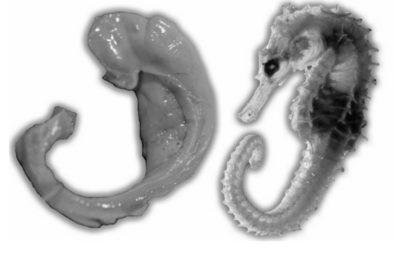What's On This Page?
ToggleLion’s mane mushroom, scientifically known as Hericium Erinaceus, is one of nature’s most powerful fungi. It’s a funny-looking mushroom with a name that conjures up the wild kingdom. It also goes by some even more bizarre names, including Satyr’s Beard and Bearded Hedgehog Mushroom. Regardless of what you call it, Lion’s Mane is a medicinal mushroom that has been used in Chinese medicine for centuries. It’s getting more popular here in the US thanks to the dedication of researchers who are studying it every day.
Lion’s Mane has some interesting beneficial effects on your body.
It contains many active ingredients, among them beta-glucan and some antioxidants. You can take it in supplemental form, or you can cook with it like you do Portobellos!
Lion’s mane helps your brain and keeps you sane
It can help to boost cognitive performance, improve mood, and protect neurons from damage. Simply put, it has the ability to protect your brain cells, and that’s a good thing.
When most people hear the word mushroom, you almost automatically think of hallucinogenic mushrooms, don’t you? LOL!
You probably don’t think that a mushroom could have a good impact on you, but science has proven otherwise when it comes to Lion’s Mane. And FYI, this mushroom has NO hallucinogenic properties!
How Can a Shroom Protect Your Ability to Think?
Your memories and cognition as well as your ability to focus and reason are important to your life.
To understand the benefits more fully, you need to learn about a critical protein known as Nerve Growth Factor or NGF. It’s one of the most important molecules in the nervous system and is the basis for many of the positive effects of Lion’s Mane on the brain. This makes the herbal extract so attractive that you might seriously consider adding it to your regimen.
Discussion of Nerve Growth Factor (NGF)
It was one of the first growth factors to be described, back in 1956. At first, it was believed to be involved primarily in the development of the nervous system during embryonic and fetal development. Although this is an important function, it turned out to be just the tip of the iceberg. NGF is critical in the proper functioning of the nervous system throughout your entire life! It’s playing a variety of roles actually, including the most important which is to grow new brain cells!
As its name implies, Nerve Growth Factor promotes the growth of new nerves, which are made up of neurons. Although it was long believed that adult brains don’t spawn new neurons, this is now known to be false. We can grow new cells. We may not create as many as children do, or as fast, however, adult brains do make new neurons, compliments of NGF.
 In an adult brain, one of the main sites of new neuron growth is the hippocampus, a structure that’s required for the formation of new memories. The name “hippocampus” comes from the Greek words meaning seahorse because it looks like one. The hippocampus lives near your amygdala and pineal gland (the latter makes melatonin to help you sleep).
In an adult brain, one of the main sites of new neuron growth is the hippocampus, a structure that’s required for the formation of new memories. The name “hippocampus” comes from the Greek words meaning seahorse because it looks like one. The hippocampus lives near your amygdala and pineal gland (the latter makes melatonin to help you sleep).
Theoretically, increasing NGF in the hippocampal area of your brain could help to improve memory. So it makes sense that the hippocampus is one of the first areas of your brain that suffers if you have Alzheimer’s, and it’s actively controlling your emotions. By the way, if you’d like to improve memory with a delicious herbal tea that you can make at home, CLICK HERE to get my recipe for Mint Hibiscus Tea.
Lion’s mane increases NGF, which then encourages the growth of new neurites. These are little outgrowths from a neuron that can become dendrites and axon terminals – the parts of neurons that connect to other neurons. In other words, NGF encourages neurons to connect to each other, communicate better, and simply put, this helps you learn faster and remember things better.
NGF is so critical to your comfort too. It’s because it controls the amount of myelin you have, which is that lipid (fatty) wax-like coating that wraps and protects your nerves. If you have a breach in your myelin, you might experience painful neuropathy and touchy nerve sensitivity in your hands and feet. In the autoimmune condition of Multiple Sclerosis, there’s a shortage of myelin. If you’d like to read about the connection between myelin and homocysteine and methylation, CLICK HERE to read my article, NSAIDS Raise Homocysteine and Impair Methylation.
NGF helps you gain more efficient electrical transmission across the nerves. If you’d like to learn more about NGF and how Super Mario increases it… and also what foods increase it (hint: blueberry is one of them!) then CLICK HERE to read my article entitled, Grow a New Brain with Blueberries, Chewy Food and SuperMario.
Lion’s Mane has been clinically studied and shown to spark more NGF and again, this is a critical component of your nervous system.
NGF is required for the protection and very survival of neurons! You can read this STUDY to see that. In fact, without enough NGF, some neurons will actually die off. Additionally, in situations of stress or damage to the nervous system, NGF is an important part of the repair process.
In an animal model, chronic unpredictable mild stress has been shown to decrease NGF. Here’s the STUDY if you’d like to cruise through it. They found that a compound in honey called “chrysin” could be helpful too because it works as an antidepressant. Chronic unpredictable mild stress…doesn’t that sound like everyday life for most of us? Keeping NGF levels high could help to protect against the negative effects of stress on the brain.
In fact, despite its name, NGF is also involved in other parts of the body beyond the nervous system. It’s involved in the immune system, the cardiovascular system, pancreatic function, and maybe even ovulation. If you have health concerns, and like natural solutions take 5 to CLICK HERE and read my other article entitled, How to Make Herbal Tea for Your Troubles.
1. Lion’s Mane Raises NGF
If you want to increase NGF in the brain, and by now you probably do, you can’t just take it as a supplement. NGF supplements do not exist. NGF is manufactured in the human body. The protein itself is way too large to cross the blood-brain barrier. Instead, you need to take something that causes the brain to make more NGF. In other words, you want to cook the cake inside the oven. You can’t bake it outside! After extensive research, it’s now widely accepted that this is exactly what Lion’s Mane herbal extract does.
That’s why I put it in my nootropic supplement called Memory Script. If you’d like to get my FREE ebook which improves memory and cognitive function, you can download that instantly by CLICKING HERE. It’s called Recipes for Better Memory.
Constituents in Lion’s Mane (Hericium Erinaceus)
Lion’s mane contains two classes of compounds that aren’t found anywhere else, called hericenones and erinacines.
Remember that the scientific name of the mushroom is Hericium erinaceus, and these names completely make sense. These are believed to be among the most potent stimulators of NGF in the mushroom, but remember that it’s an entire medicinal fungus, containing dozens, if not hundreds or even thousands, of biologically active compounds.
While it’s entirely possible that Western medicine will find a way to synthesize one or a few of these and make them into a pill, taking an extract of the whole mushroom will give you all of them, rather than just a few.
2. Lion’s Mane Reduces Inflammation
Its effect on NGF is far from the only effect of a lion’s mane. It contains a compound called “amycenone” which has been STUDIED (Pharmacology, Biochemistry, and Behavior 2015) and found to reduce levels of several pro-inflammatory cytokines that impact mood… essentially give you a bad mood. Lion’s Mane indirectly helps control this inflammation. You can read about that study by CLICKING HERE.
Given that excessive inflammation is believed to be involved in many different disease processes, including some of the most common brain diseases (from depression to Alzheimer’s disease), this effect can help lion’s mane to protect the brain. It’s also been shown to increase levels of acetylcholine, an important neurotransmitter. Acetylcholine levels are decreased in neurological diseases like Alzheimer’s and Parkinson’s. The goal is to raise those most of the time and this is exactly why some medications treating those disorders raise acetylcholine. It’s considered a memory molecule.
3. Lion’s Mane Helps Depression and Anxiety

All of this biochemistry is great, but in the end, what we really care about is what actually happens to our own brains. Sure, it works in a petri dish, but does lion’s mane really do anything in a whole human?
It certainly looks like it does and I’m not just saying that because I have a memory supplement that includes Lion’s Mane as part of its formula. It’s because there IS scientific research and there IS a whole host of beneficial effects. A variety of studies already published (and many more that are still being conducted in large University settings) have shown beneficial effects of taking Lion’s Mane on several different brain-related concerns.
For example, one STUDY suggests that Lion’s Mane can help reduce symptoms of BOTH anxiety and depression after just four weeks. Unlike traditional SSRIs and other anti-depressants or psychoactive drugs, there is no risk of addiction, tolerance withdrawal, or receptor down-regulation.
In people with mild cognitive impairment (the precursor to full-blown dementia), taking Lion’s Mane significantly improved cognitive performance, with the positive benefits increasing over the duration of the 16-week trial. Both of these were double-blind, placebo-controlled trials – very tight studies offering us the highest level of scientific evidence we could hope for.
More research is needed, and being conducted. No one is ready to throw away their pills or disregard their physician’s orders over this. But of course, it is enticing, and exciting to stay tuned in to this very special mushroom. In years to come, we will fully elucidate what other effects this mushroom has on our health. So just remember this that funny-looking fungus is one of Mother Nature’s best brain-boosters. There are 3 simple ways you can add more Lion’s Mane to your life.
1. You can buy it as a supplement.
It’s an ingredient as a stand-alone product, and it’s also found in various supplements that are known to be “nootropic.” There are many at health food stores. I’ve actually formulated my own dietary supplement, it’s patent-pending, and it’s called Memory Script.
2. You can cook with it.
Some grocery stores sell Lion’s Mane mushroom in the produce section. You can simply saute it with butter or oil in a pan like you would any other mushroom. Don’t wet it, it’s better to rub the mushrooms clean with a napkin than to drench them in water because they’ll become soggy.
3. You can make Lion’s Mane tea.
Buy the mushroom as a dried herb, or in the produce section and steep it in hot water. Just steep (or gently simmer it for 15 minutes), strain and drink. It’s okay to sweeten it with honey.

Suzy Cohen, has been a licensed pharmacist for over 30 years and believes the best approach to chronic illness is a combination of natural medicine and conventional. She founded her own dietary supplement company specializing in custom-formulas, some of which have patents. With a special focus on functional medicine, thyroid health and drug nutrient depletion, Suzy is the author of several related books including Thyroid Healthy, Drug Muggers, Diabetes Without Drugs, and a nationally syndicated column.


